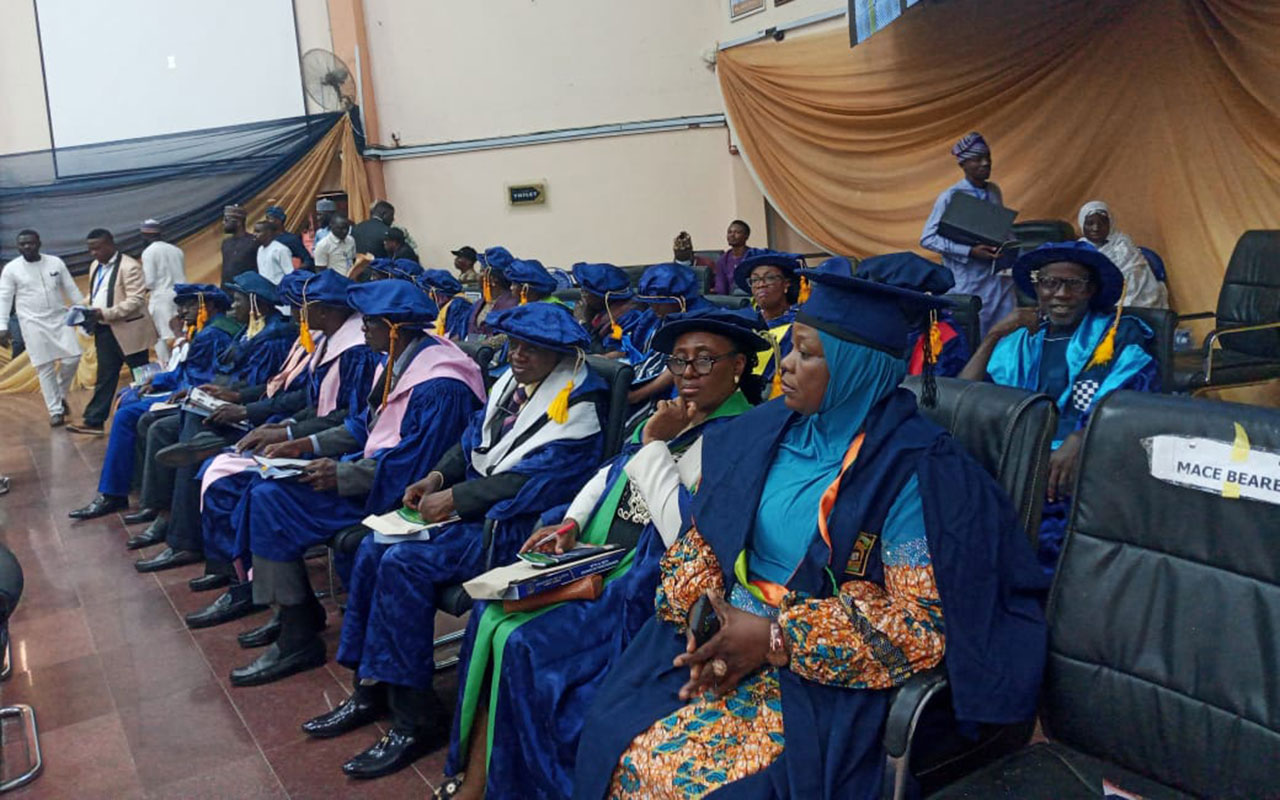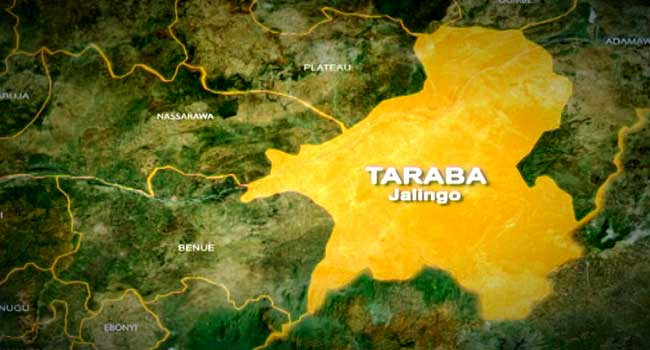 The Jacob and Frances Sanger Mossiker Chair in the Humanities and University Distinguished Teaching Professor at the University of Texas at Austin, United States of America, Toyin Falola, has described Nigeria’s youth culture as vibrant, driving the country towards unexplored socioeconomic territories.
The Jacob and Frances Sanger Mossiker Chair in the Humanities and University Distinguished Teaching Professor at the University of Texas at Austin, United States of America, Toyin Falola, has described Nigeria’s youth culture as vibrant, driving the country towards unexplored socioeconomic territories.
Professor Falola made this known while delivering the 37th and 38th combined convocation ceremonies’ lecture of the University of Ilorin on Friday.
In the lecture titled: ‘Modernity, Modernisation, and Values’, Falola noted that the influence of modernity on societal values in Nigeria, akin to various regions across Africa, can be described as lively and progressive.
He argued that this represents an ever-changing exchange between traditional and contemporary elements, embodying the ambitions, aspirations, and challenges faced by a nation in motion.
Speaking on the youth demography, the historian stated that “the young population of Nigeria assumes a leading role, driving the nation towards unexplored territories where individual ambitions, self-assertion, and independence are increasingly taking centre stage. Modernity in Nigeria is characterised by a vibrant youth culture that is progressively diverging from the communal affiliations delineated by ethnicity, religious beliefs, or geographic proximity. In their place, a nascent sense of self is being nurtured, predicated upon individual accomplishments and aspirations. The emergence of entrepreneurial activities within Nigeria’s urban hubs, particularly the exemplification of a vibrant “hustle culture” in Lagos, reflects a growing demand for personal accomplishments, a departure from conventional trajectories, and a wholehearted embrace of venturesome endeavours and innovative thinking.
“The importance of education and the influence of global connectivity, facilitated by the digital revolution, should not be underestimated within this specific context. The widespread dissemination of diverse ideas, philosophies, and lifestyles facilitated by digital platforms has cultivated a population increasingly inclined towards critical inquiry, rational thinking, and the pursuit of unique trajectories, sometimes deviating from established conventions and customs. Moreover, the advent of the digital age has facilitated cultural globalisation, where the sharing and celebration of personal narratives can occur on an unparalleled scale. This has created a cultural environment that reverses individual stories and triumphs.
“In the historical context of the European Renaissance, we encounter parallel narratives characterised by an increased emphasis on individual capacity and self-realisation. During this era, artists, intellectuals, and innovators departed from the prevailing collective discourse, forging novel trajectories in the realms of arts, science, and philosophy. Drawing upon a comparative analysis with present-day Nigeria, it becomes evident that a surge in imaginative prowess and inventive thinking is taking place. The younger generation of Nigerians is making noteworthy progress in various fields such as the arts, music, literature, and technology. This commendable advancement allows them to establish a distinctive position that aligns harmoniously with contemporary global discourse.
“Nevertheless, the transition towards individualism is not without its complexities and paradoxes. In Nigeria, much like in other African nations, the societal framework has been deeply entwined with communal and familial structures. As the prevalence of individualism continues to increase, a nuanced interplay emerges between the embrace of modernity and a deliberate commitment to preserving values that prioritise communal solidarity and cohesion.”
Speaking further, he said: “The current era of societal transformation witnesses a profound convergence of long-standing customs and the burgeoning impact of globalisation. In this context, values are not fixed but rather dynamic entities, subject to constant evolution as they adapt and reconfigure under the influence of economic, technological, and socio-political forces. Similarly, it is noteworthy that Asian countries such as India and China have undergone significant transformations in their socio-cultural terrains. This transformation entails a noticeable shift in the importance placed on communal and familial ties, as these societies gradually accommodate the desires for individuality and personal autonomy. It is important to acknowledge, however, that these shifts manifest themselves in distinct ways across different regions, giving rise to nuanced and varied expressions of this evolving social landscape.
“The current wave of modernity has prompted a transformation in the economic domains, shifting the focus increasingly towards entrepreneurship and innovation. The Nigerian economic framework mirrors a global trend where countries are creating environments that foster innovation and economic diversification, transcending traditional economic foundations to explore new pathways of progress and advancement. This narrative resonates with several Latin American countries where an emerging middle class is actively shaping its values to prioritise economic resilience, sustainability, and inclusivity.
“Moreover, when compared to more advanced regions like Europe and North America, the process of modernisation in Nigeria is still in its early stages. However, it is showing promising signs of growth, marked by a dynamic and enthusiastic younger generation eager to forge avenues aligned with the ideals of advancement and prosperity. These well-developed regions, characterised by their sophisticated infrastructure and firmly established democratic systems, provide a valuable perspective for assessing Nigeria’s progress in its pursuit of modernity. Additionally, they shed light on the inherent challenges and possibilities that accompany this transitional process.
“Within the domain of technology, Nigeria finds itself at a captivating juncture. The advent of the digital revolution is cultivating a society that is progressively interconnected, well-informed, and globally aware. The digital narrative shares similarities with various global contexts, where the influence of technology has emerged as a powerful catalyst, shaping societal values that align with interconnectedness, knowledge dissemination, and groundbreaking advancements. The contemporary global digital environment has become a fertile terrain for fostering intercultural interactions, cultivating a set of values that are progressively universal while retaining distinct regional characteristics and impacts.
In his speech at the occasion, the Vice Chancellor of the university, Professor Wahab Egbewole, congratulated the graduating students as he hoped that their years of training and learning at the university would help in the needed transformation of the Nigerian society.






